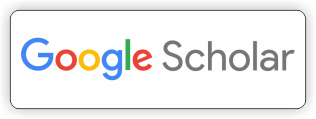Publication Ethics
Ethics and Malpractice Statement
INQUIRY: Islamic Religious Education S2 STAI Sabili Bandung is a peer-reviewed journal that discusses research findings in Islamic religious education at both elementary, secondary, and higher education levels. This journal publishes original research articles and case studies focused on Islamic religious education. The following statement clarifies the ethical attitudes and behavior of all parties involved in the process of publishing articles in this journal, including authors, editors, reviewers, and publishers. This statement is based on COPE's best practice guidelines for journal editors https://publicationethics.org
Section A: Publication and Authorship
1. All submitted papers are subject to a rigorous peer review process by at least two reviewers who are experts in the specific field of the paper.
2. The review process is a double-blind peer review.
3. Factors considered in the review are relevance, robustness, significance, originality, readability, and language.
4. Possible decisions include acceptance, acceptance with revisions, or rejection.
5. If authors are encouraged to revise and resubmit their submissions, there is no guarantee that the revised submission will be accepted.
6. Rejected articles will not be re-reviewed.
7. Acceptance of papers is restricted by applicable legal requirements regarding libel, copyright infringement, and plagiarism.
8. No research may be included in more than one publication.
Section B: Author Responsibilities
1. Authors must declare that their manuscript is their original work.
2. Authors must declare that their manuscript has not been published elsewhere.
3. Authors must declare that their manuscript is not currently under consideration for publication elsewhere.
4. Authors must participate in the peer review process.
5. Authors are obligated to provide retractions or corrections of errors.
6. All authors named in the paper must have made a significant contribution to the research.
7. Authors must declare that all data in the paper are factual and authentic.
8. Authors must inform the Editor of any conflicts of interest.
9. Authors must identify all sources used in the preparation of their manuscript.
10. Authors must report any errors they discover in their published work to the Editor.
Section C: Reviewer Responsibilities
1. Reviewers should keep all information regarding papers confidential and treat it as privileged.
2. Reviews should be conducted objectively, without personal criticism of the authors.
3. Reviewers should express their views clearly with supporting arguments.
4. Reviewers should identify relevant published work that has not been cited by the authors.
5. Reviewers should also notify the Editor-in-Chief of any substantial similarity or overlap between the manuscript under consideration and any other published paper of which they have personal knowledge.
6. Reviewers should not review manuscripts if they have conflicts of interest resulting from competitive, collaborative, or other relationships or connections with any of the authors, companies, or institutions connected to the papers.
Section D: Editorial Responsibilities
1. Editors have full responsibility and authority to reject or accept an article.
2. Editors are responsible for the content and overall quality of the publication.
3. Editors should always consider the needs of authors and readers when trying to improve the publication.
4. Editors should ensure the quality of the papers and the integrity of the academic record.
5. Editors should publish errata pages or make corrections when necessary.
6. Editors should have a clear picture of the research funding sources.
7. Editors should base their decisions solely on the importance, originality, clarity, and relevance of the paper to the scope of the publication.
8. Editors should not reverse their decisions or overturn previous decisions without good reason.
9. Editors should maintain the anonymity of reviewers.
10. Editors should ensure that all research material they publish complies with internationally accepted ethical guidelines.
11. Editors should only accept a paper if they are reasonably certain.
12. Editors should act if they suspect misconduct, whether the paper is published or unpublished, and make every reasonable effort to resolve the issue.
13. Editors should not reject papers based on suspicion; they must have evidence of misconduct.
14. Editors should not tolerate conflicts of interest among staff, authors, reviewers, and board members.








